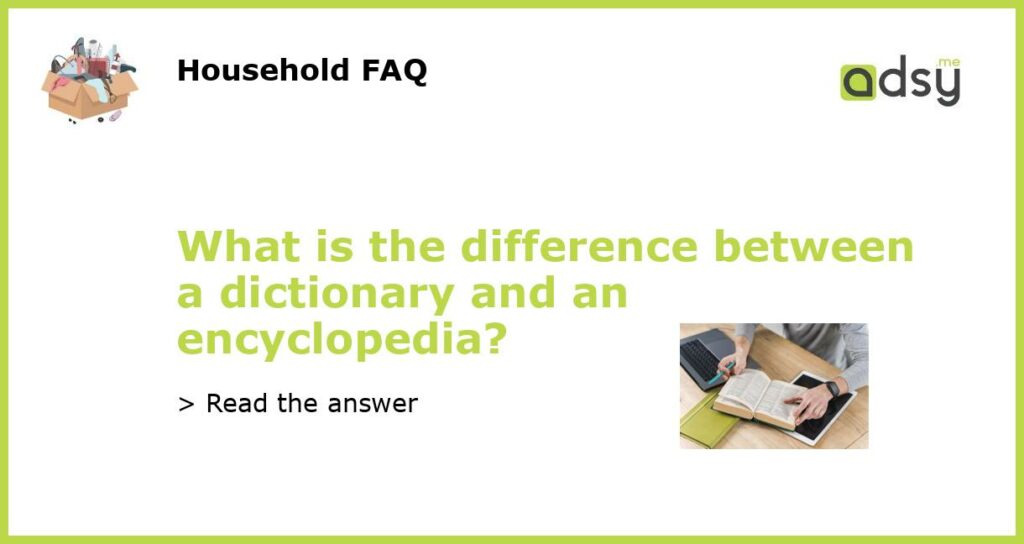The difference between a dictionary and an encyclopedia
Many people tend to confuse dictionaries and encyclopedias as being the same, but they are not. Both of them are useful tools, but they serve different purposes. While a dictionary contains definitions of words, an encyclopedia provides a wealth of knowledge on various subjects. In this article, we will highlight their differences.
The function of a dictionary
A dictionary is a book that contains an alphabetical list of words, their meanings, and sometimes their pronunciation. The primary function of a dictionary is to provide definitions and spellings for words. Dictionaries can be general, such as Oxford English Dictionary, or specialized, such as a medical dictionary.
They also include information about the origin and history of words, synonyms, antonyms, and usage. Dictionaries can be printed or available online and come in various languages.
The purpose of an encyclopedia
An encyclopedia is a book containing information on various subjects arranged alphabetically, such as history, science, geography, and many more. It provides comprehensive and detailed information on specific topics or subjects.
The purpose of an encyclopedia is to provide a broad understanding of a specific subject matter or topic. Unlike dictionaries, encyclopedias do not focus on individual words; instead, they give a more in-depth analysis of the subject in question. An encyclopedia can be printed or available online, and it is also available on CD-ROMs.
The similarities between the dictionary and encyclopedia
While dictionaries and encyclopedias serve different purposes, they also have similarities. Both are valuable reference tools that people use to learn and understand information. They can be used to verify information and settle disputes about meanings, spellings, or pronunciation.
Also, they both contain detailed information in one form or the other. While a dictionary provides quick access to the meaning of words, the encyclopedia is a comprehensive source of knowledge on various subjects.
To sum up, dictionaries and encyclopedias serve different functions, but the similarities they share cannot be ignored. While one provides definitions and spellings of words, the other provides detailed and comprehensive information on various subjects. Ultimately, whether you need a dictionary or an encyclopedia depends on the task at hand.






